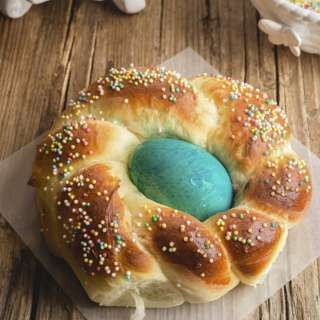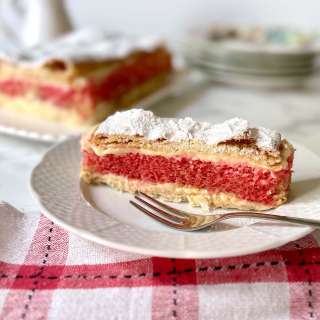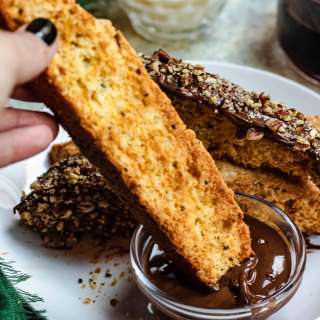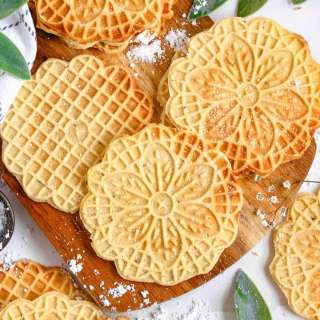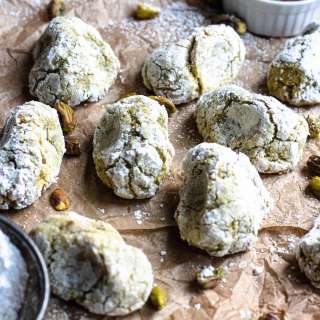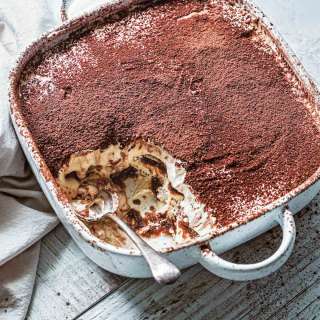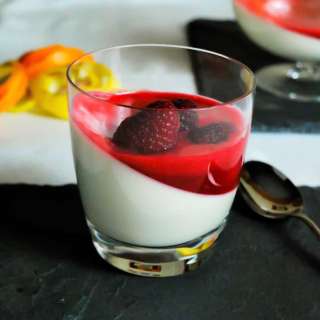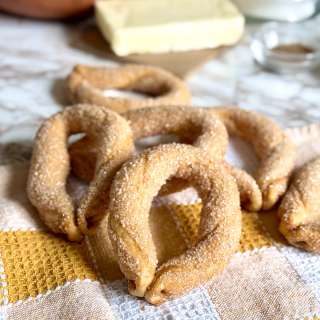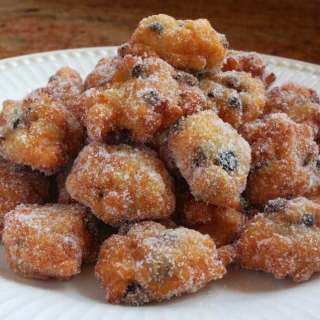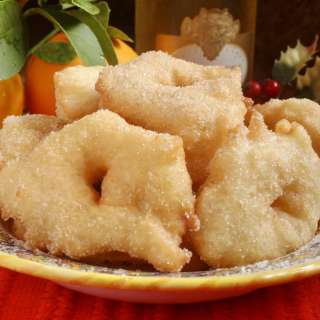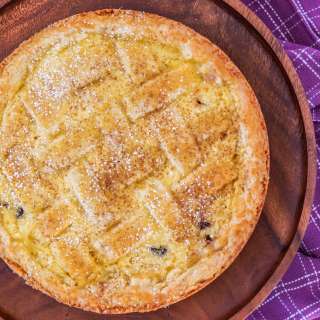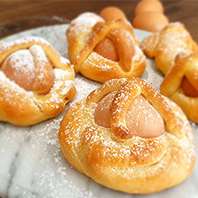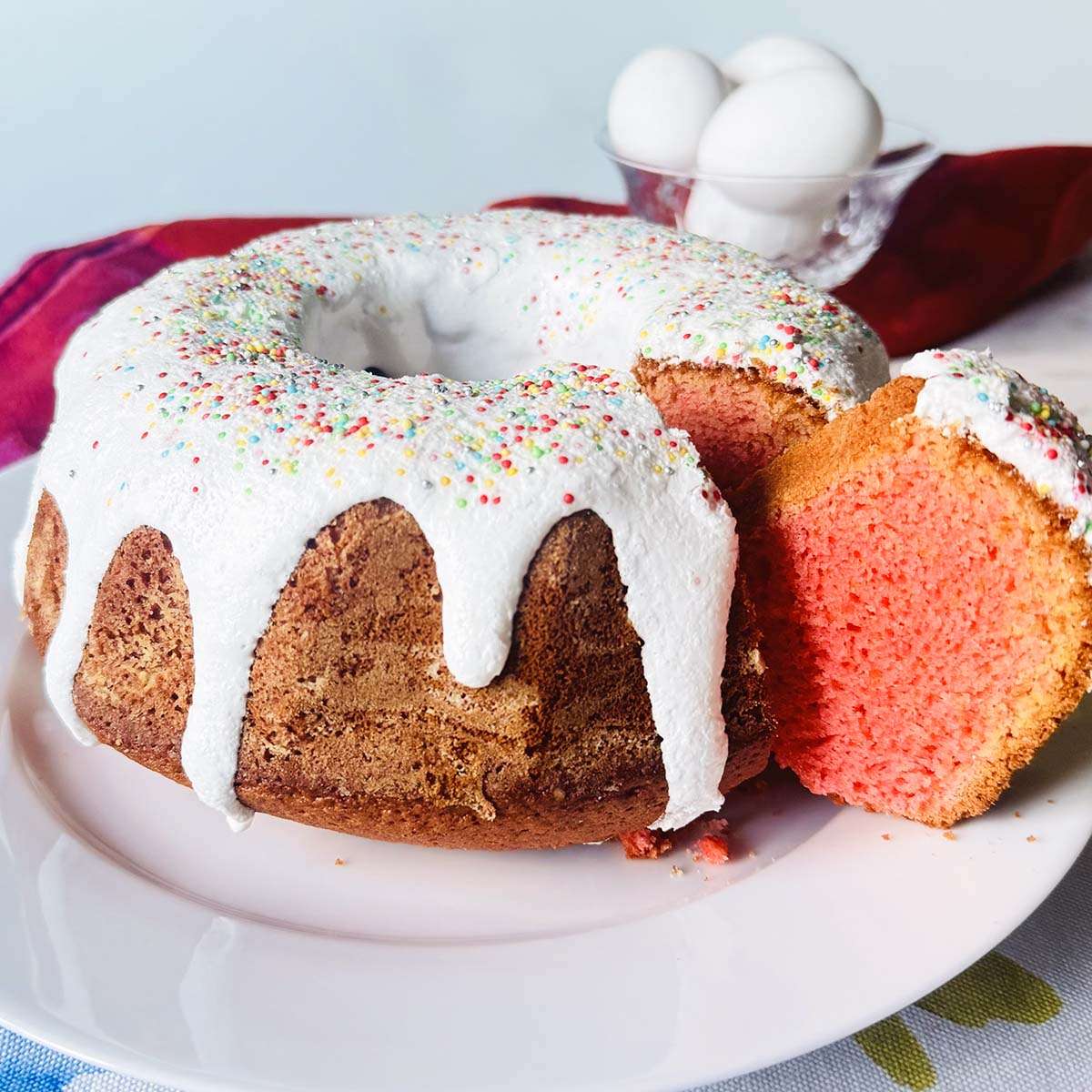
Ciaramicola: Traditional Italian Easter Cake from Perugia
User Reviews
0.0
0 reviews
Unrated

Ciaramicola: Traditional Italian Easter Cake from Perugia
Report
Ciaramicola is a classic Italian Easter cake from Perugia and the surrounding region. This festive bundt cake stands out for its vibrant red color, soft texture, and delicious meringue topping sprinkled with colorful decorations.It is a traditional Umbrian dessert rich in history and symbolism.
Share:
Ingredients
For the Dough
- 2 eggs
- 2 egg yolks
- 150 g granulated sugar - ¾ cup
- ½ lemon zest
- 80 g unsalted butter - ⅓ cup
- 125 ml liqueur ½ cup, Alkermes. If you can't find this Italian liqueur, mix cherry syrup with a little rum or brandy to create a sweet and slightly alcoholic combination, similar to Alchermes.
- 230 g flour - 2 cups + 3 tablespoons
- 16 g baking powder - 4 teaspoons
For the Decoration
- 2 egg whites
- 1 teaspoon lemon juice
- 70 g granulated sugar - ⅓ cup
- 70 g powdered sugar - ⅔ cup
- Rainbow sprinkles
Instructions
Prepare the Dough
- To start, prepare the cake batter. Crack two whole eggs into a large mixing bowl, then add two additional egg yolks. Set the two leftover egg whites aside—you’ll need them later to make the meringue topping.
- Add the granulated sugar and the grated zest of half a lemon to the eggs. Using a hand or stand mixer, beat the mixture until it becomes light and fluffy. The sugar should dissolve completely, and the eggs should take on a pale, frothy texture.
- Once the egg mixture is well aerated, melt the butter and slowly add it while continuing to mix. This helps create a soft, moist texture for the cake.
- Next, pour in the Alchermes liqueur, the key ingredient that gives the Ciaramicola cake its distinctive red color and delicate floral aroma. Stir well to combine until the batter is evenly colored.
- Mix the flour with the baking powder. Then sift it to remove any lumps, and gradually add it to the batter. Stir constantly to make sure it's well incorporated and no dry spots remain.
Bake the Cake
- The batter is now ready. Grease and flour a 23-24 cm (9-inch) bundt cake pan to prevent sticking. Pour the batter into the pan, spreading it evenly.
- Preheat the oven to 170°C (340°F) and bake for about 40 minutes. The cake is done when it turns golden brown and a toothpick inserted in the center comes out clean.
Prepare the Meringue
- While the cake is baking, start making the meringue topping. Take the two egg whites you set aside earlier and pour them into a clean, dry mixing bowl. Add a teaspoon of lemon juice, which helps stabilize the meringue.
- Using an electric mixer, whip the egg whites until they become foamy. Once they start forming soft peaks, gradually add the granulated sugar, a little at a time, while continuing to beat.
- When the egg whites become glossy and form stiff peaks, sift in the icing sugar little by little, still whisking. Keep mixing until you get a thick, shiny meringue that holds its shape.
Decorate and Bake
- When the cake is fully baked, remove it from the oven and immediately take it out of the pan while it's still warm. Place it on a round baking sheet. Do not turn off the oven yet! Instead, lower the temperature to 90°C (195°F) and leave the door slightly open for a few minutes to help it cool down gradually.
- Using a spatula, spread the meringue evenly over the surface of the cake, making soft swirls to create a decorative effect.
- Finally, sprinkle a generous amount of colored sprinkles on top, giving it a festive and traditional look.
- Return the cake to the oven and bake at 90°C (195°F) for about 30 minutes. This step will dry the meringue, making it firm and slightly crisp on the outside while keeping it soft inside.
- Once done, remove the cake from the oven and let it cool completely before serving.
Nutrition Information
Show Details
Serving
100g
Calories
409kcal
(20%)
Carbohydrates
65g
(22%)
Protein
6g
(12%)
Fat
11g
(17%)
Saturated Fat
6g
(30%)
Polyunsaturated Fat
1g
Monounsaturated Fat
3g
Trans Fat
0.3g
Cholesterol
111mg
(37%)
Sodium
244mg
(10%)
Potassium
68mg
(2%)
Fiber
1g
(4%)
Sugar
42g
(84%)
Vitamin A
374IU
(7%)
Vitamin C
1mg
(1%)
Calcium
138mg
(14%)
Iron
2mg
(11%)
Nutrition Facts
Serving: 8Serving
Amount Per Serving
Calories 409 kcal
% Daily Value*
| Serving | 100g | |
| Calories | 409kcal | 20% |
| Carbohydrates | 65g | 22% |
| Protein | 6g | 12% |
| Fat | 11g | 17% |
| Saturated Fat | 6g | 30% |
| Polyunsaturated Fat | 1g | 6% |
| Monounsaturated Fat | 3g | 15% |
| Trans Fat | 0.3g | 15% |
| Cholesterol | 111mg | 37% |
| Sodium | 244mg | 10% |
| Potassium | 68mg | 1% |
| Fiber | 1g | 4% |
| Sugar | 42g | 84% |
| Vitamin A | 374IU | 7% |
| Vitamin C | 1mg | 1% |
| Calcium | 138mg | 14% |
| Iron | 2mg | 11% |
* Percent Daily Values are based on a 2,000 calorie diet.
Genuine Reviews
User Reviews
Overall Rating
0.0
0 reviews
Unrated
Other Recipes
You'll Also Love
Traditional Italian Rice Fritters/Doughnuts for St. Joseph's Day (Frittelle di Riso di San Giuseppe)
Italian
4.7
(84 reviews)
